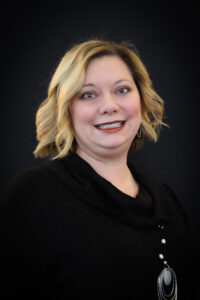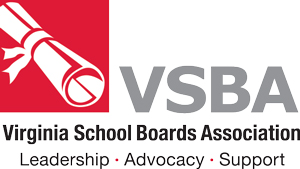VSBA Profile in Leadership- Meet Amy McClure, VSBA Southern Region Chair
What do you do when you’re not working on School Board items?
I am currently the Coordinator of Federal Programs for Prince Edward County Public Schools. I also teach adjunct education courses for Southside Virginia Community College. When I am not working, I love camping with my husband Corey and my two daughters, Aubrey and Ally.

Amy McClure, VSBA Southern Region Chair
Where do you turn for new ideas about serving your community?
I enjoy attending local Chamber of Commerce, Lions Club, athletics, and theatre events.
What are one or two issues/topics/challenges that are especially important to you and why?
School accountability measures during these challenging times are important to me. Over the past two years, school divisions across the country have experienced times like never before. While the Covid-19 pandemic has begun to recede, the challenges within school divisions have become greater. Finding fully endorsed and licensed teachers for all positions is tough. School divisions offer tuition reimbursement for student loans, sign-on bonuses, and other avenues to recruit teachers to sign a contract. However, we cannot settle for human bodies with oxygen. If the position needs to go unfilled until you find the right candidate, then leave the position open. Central office staff this past year have been seen driving buses and covering classes. As leaders, we must set the expectations, and we cannot allow the pandemic to decrease our expectations for student learning. The student curriculum must be aligned to the standards and rigorous for student growth. Teachers cannot teach as they taught before March 13, 2020. Leaders need to help teachers develop lesson plans, so students are exploring, engaged, and excited in their learning. The administration needs to start with the data, facilitate curriculum alignment and lesson planning, and provide effective, timely feedback to move the needle.
The division data dig process is a great place to start making changes. This process allows the division and schools to triangulate data from benchmarks, diagnostic screeners, and other selected sources such as student attendance, discipline, and teacher attendance, as relevant to each school. Break out the data by subgroups. What are you noticing? What areas do you want to target for continuous school improvement?
Following each data dig, break down the areas for continuous improvement into short-term, mid-term, and long-term goals. For short-term goals, think about what you can do right now in the next two weeks in your building. For example, look at the grade level data or subject area. Mid-term – what can you do in the next four months? Long-term goals – where do you want to see the students in a year?
When teachers are involved in the data dig process, a culture of trust and responsibility is created. Teachers naturally set high expectations for themselves and their students.
What is the most important thing you’ve learned through your board service that you’d like to share with others?
As a board member, you will get phone calls, emails, text messages, etc., from parents, teachers, and sometimes students. Remember, anything you put into writing is subject to FOIA. As a board member, you are only one of a collected we. The superintendent is responsible for all of the employees within the school division. The board is responsible for adopting a budget, adopting a policy, ensuring policy is followed, hiring the superintendent, and evaluating the superintendent. Do not get bogged down trying to micromanage the school division. That is not your job. That is the job of the superintendent. When a parent, teacher, or student reaches out to you. Listen and take notes. Do not respond. You can always say, “Thank you for reaching out. I will share your concerns.” Share with the superintendent. If Sally’s mom is upset because her teacher took her phone, you can email the superintendent that this parent has contacted you. Do not get involved by calling the teacher or the principal. You should always contact the superintendent and/or board chair.
What happens in a closed session stays in a closed session. You do not want to be that board member who breaks your board’s trust.
